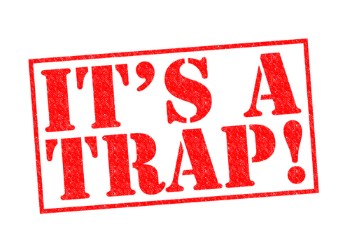One weird trick -- Facebook to clear newsfeeds of click-bait headlines
 Click-bait articles are rife online. Countless websites ply a trade in leading headlines designed to lure readers in, giving as little away as possible as an encouragement to click through. A virtual prick-tease, if you will. Sometimes the click is worth it, but all too often the article -- particularly on tabloid-style newspapers, magazine websites and sites peddling listicles -- is pointless or misleading. A suggestive question, the promise of sex, inappropriate references to the iPhone 6, the implication of free money... the possibilities for click-bait are virtually endless. It -- understandably -- annoys a lot of people, and it has annoyed Facebook enough for the social network to take a stand.
Click-bait articles are rife online. Countless websites ply a trade in leading headlines designed to lure readers in, giving as little away as possible as an encouragement to click through. A virtual prick-tease, if you will. Sometimes the click is worth it, but all too often the article -- particularly on tabloid-style newspapers, magazine websites and sites peddling listicles -- is pointless or misleading. A suggestive question, the promise of sex, inappropriate references to the iPhone 6, the implication of free money... the possibilities for click-bait are virtually endless. It -- understandably -- annoys a lot of people, and it has annoyed Facebook enough for the social network to take a stand.
You've no doubt noticed that your Facebook newsfeed has become clogged up with countless "one weird trick", "ten ways to give her the best orgasm ever", and "you'll never guess what!" headlines. Now Facebook is taking steps to limit the appearance of such articles so that what users see is more interesting and relevant. In a post on the Facebook blog, it has been announced that two key updates are to be made: "the first to reduce click-baiting headlines, and the second to help people see links shared on Facebook in the best format".
There are several problems with click-bait articles, not least of which is that they tend to be rather disappointing. But the problem is exacerbated by the very fact that they have been made to encourage clicking -- hence helping to draw in ad revenue from page views for the site in question. As more people click the links as they appear in their Facebook newsfeeds, Facebook's algorithms take this to mean that the articles are genuinely popular, and pushes them to the top of even more people's feeds.
Without visiting every single link that is getting posted to the social network, or conducting a poll after a link has been clicked, it is quite difficult to determine whether a link is to a genuinely interesting or useful article, or is just click-bait linking to spam. Now Facebook is going to start monitoring how long people spend on a site after clicking a link. If the visit is short, it's safe to assume the link was useless. Also factored in is the number of shares an article gets to help determine its real worth.
Another update to the way posts are handled means that articles that have linked embedded titles or images -- rather in clear, easily decipherable URLs -- will float to the top more readily. Facebook hopes that this will also help users to more easily access articles that they are genuinely interested in rather than having to click a link just to find out what something is.
